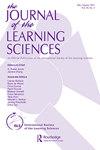其他太阳:通过投机教育设计种族平等
IF 3.9
1区 教育学
Q1 EDUCATION & EDUCATIONAL RESEARCH
引用次数: 1
摘要
时间和地点的概念通常在侧重于正规教育系统中系统性种族主义的可怕物质后果的学术分析中进行具体和具体的详细描述。作为教育研究人员,我们接受的训练是准确地指出青年和社区在何时何地遭受伤害,并煞有苦心地记录这种伤害积累(或减少)的特定机制。相反,当涉及到教育的概念化和实现种族平等的结果时,时间和地点区域更加模糊和延迟。研究报告的讨论和暗示部分试图挑战或描述对结构性不平等的破坏,模糊地暗示了教育系统大规模转型的必要性,但承认当前研究结果框架的前景有限。“在那里”,我们的领域指出,“公平的解决方案在那里”更远,也许只是遥不可及。对何时何地的思考,召唤着我们走向地平线上公正和解放未来的理想海市蜃楼。但如果我们的研究现在只要求未来呢?如果我们把我们的理论和方法的镜头直接集中在阐明和设计这些期望的视野上,作为在当前条件的增量约束下工作的先决条件,会怎么样?本期特刊试图通过引入和实证探索一种思辨教育范式来回答这个问题。我们将会清楚地看到,思辨教育是对教育理论、研究和实践的一种劝告,要求我们迫切地、创造性地思考我们目前所处的世界,以及我们可以学会创造的世界。因此,我们邀请您加入我们对这个框架(和特刊)起源的一些初步思考,作为研究本身的前奏。本文章由计算机程序翻译,如有差异,请以英文原文为准。
Other suns: Designing for racial equity through speculative education
The concepts of time and place are often described in specific and concrete detail in scholarly analyses focused on the dire material consequences of systemic racism in formal education systems. As educational researchers, we are trained to pinpoint exactly where and when youth and communities are experiencing harm and to painstakingly document the particular mechanisms through which such harm accumulates (or lessens). Conversely, when it comes to both conceptualizing and achieving racially equitable outcomes in education, time and place areas much more blurrier and deferred. Discussion and implication sections of study write-ups that seek to challenge or describe disruptions to structural inequity vaguely gesture toward the necessity of massive transformation in education systems but acknowledge the limited vista within which current findings are framed. “There,” our field points, “Solutions to equity lie over there” ever further, perhaps just out of reach. Considerations of where and when beckon us toward an aspirational mirage of just and liberatory futures on our horizon. But what if our research demanded just futures now? What if we focused our theoretical and methodological lenses squarely on articulating and designing these desired horizons as a precondition for laboring within the incremental constraints of present conditions? This special issue seeks to begin answering this question by introducing and empirically exploring a paradigm of speculative education. As will become clear, speculative education is an exhortation to educational theory, research, and practice to think urgently and creatively about the worlds in which we currently find ourselves and the worlds we can learn to create. Thus, we invite you to join us in some initial musings about the origins of this framework (and special issue) as a prelude to the research itself.
求助全文
通过发布文献求助,成功后即可免费获取论文全文。
去求助
来源期刊

Journal of the Learning Sciences
Multiple-
CiteScore
10.70
自引率
5.30%
发文量
17
期刊介绍:
Journal of the Learning Sciences (JLS) is one of the two official journals of the International Society of the Learning Sciences ( www.isls.org). JLS provides a multidisciplinary forum for research on education and learning that informs theories of how people learn and the design of learning environments. It publishes research that elucidates processes of learning, and the ways in which technologies, instructional practices, and learning environments can be designed to support learning in different contexts. JLS articles draw on theoretical frameworks from such diverse fields as cognitive science, sociocultural theory, educational psychology, computer science, and anthropology. Submissions are not limited to any particular research method, but must be based on rigorous analyses that present new insights into how people learn and/or how learning can be supported and enhanced. Successful submissions should position their argument within extant literature in the learning sciences. They should reflect the core practices and foci that have defined the learning sciences as a field: privileging design in methodology and pedagogy; emphasizing interdisciplinarity and methodological innovation; grounding research in real-world contexts; answering questions about learning process and mechanism, alongside outcomes; pursuing technological and pedagogical innovation; and maintaining a strong connection between research and practice.
 求助内容:
求助内容: 应助结果提醒方式:
应助结果提醒方式:


